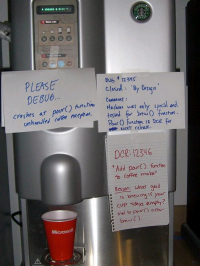I prefer to come into work a little earlier before our 9 a.m. start time in order to leave before 5 p.m. My boss has no problem with my hours, though an older female colleague apparently does. She regularly tells me that this “special†work schedule is damaging my career trajectory and conveys to others that I am a diva. To that I reply, according to whom?
There are many workplace assumptions that employees accept without question. Why does the traditional work day start at 9 a.m? Who decided 14 days is the proper amount of annual vacation time? Why do employees need to give a two-week notice to depart from a job? Why is everything workplace-related so structured and standardized? Employees have largely embraced the status quo and shrugged at the thought of doing anything other than the way it’s always been.
Now, I am joined by a growing number of Millennials who are challenging these traditional workplace assumptions, and the resulting findings are fundamentally altering the workforce, but also stirring up generational and gender clashes.
It turns out that most of these “guidelines†have no solid reason for their vast corporate acceptance. There’s no data demonstrating workers are more productive if they start at 9 a.m. instead of 10 a.m. There’s also a lack of research supporting whether two weeks is too much or too little notice in order to leave a job.
More notably, Millennials are discovering that the current corporate structure uniting these assumptions is inherently biased against women. This doesn’t mean that there’s a secret agenda backed by sexist men to keep women from achieving their true career potential. Rather, the entire corporate model has been constructed without any female input because most of these so-called commonly accepted truisms were developed when only men were part of the workforce.
The entire corporate culture — from decision-making procedures to the time allotted for lunch — is designed to maximize the strengths of male workers. For instance, it’s well-established that men perform more effectively under routine and structure. Thus, the eight-hour workday, with set break times, was established. When women began entering the workforce during the mid-1900s, they were forced to adapt to that model rather than participate in the creation of a new one. As a result, women’s needs, strengths, and preferences have never been addressed by the corporate workforce, and are likely the reason why so many women are dissatisfied with their professional lives. They are square pegs trying to fit into a circle. They aspire to different goals — relationships over status; they communicate differently — collaborative over top-down; and thrive in different work environments — open-air over individual cubicles.
It seems obvious to incorporate at least a few feminine preferences into the corporate world to maximize their productivity. Yet the reasons this hasn’t happened on a broader scale demonstrates how complicated the concept of gender is at work. Both men and women continue to loath having to acknowledge any possible gender differences, regardless of whether they are good or bad. Even more, Boomer women, and not men, are the most threatened by these discussions and work hard at squashing any possible changes. These Boomer women fought so hard for workplace equality that they aren’t willing to admit or see any gender differences. And the fundamental premise of what Millennial women are doing — challenging the status quo — acknowledges that there are gender differences.
It’s only now that Millennials are demanding changes to these long-held assumptions that these gender differences are also being addressed by a significant number of corporations. The growing acceptance of open office cubicles and flexible work schedules are just two examples. Ironically what Millennials want in an ideal workforce are also the same things that women seek: flexible work schedules, cultivating a culture that respects work-life balance, and evaluating performance based on results instead of the number of hours at the office. Somehow I don’t think men will have any problems with these requests.
Source:http://www.forbes.com/sites/larissafaw/2012/01/18/why-does-work-start-at-9-a-m/

